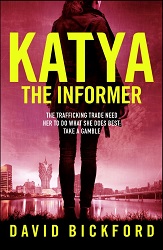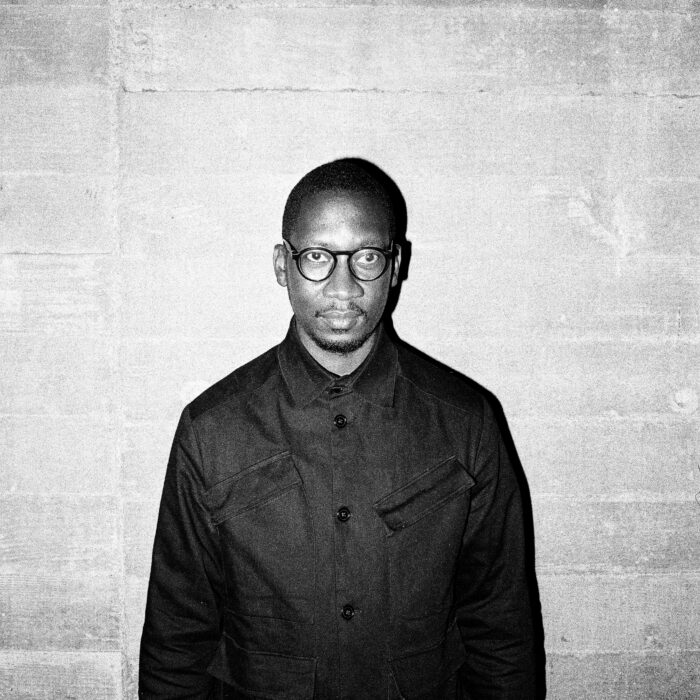You have no items in your cart. Want to get some nice things?
Go shopping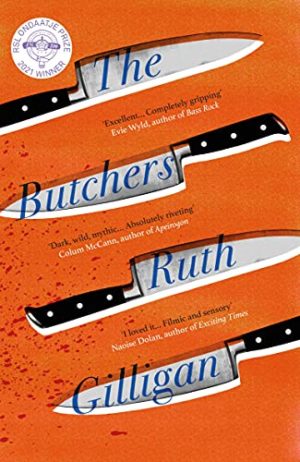
Ruth Gilligan is an Irish novelist and Professor in Creative Writing at the University of Birmingham. At 18, she was the youngest person to reach number one on the Irish bestsellers’ list. The Butchers won the 2021 RSL Ondaatje Prize and is her fifth novel. Published with Atlantic books, The Butchers is out in paperback now.
Cindy Withjack: First, as if we haven’t been chatting for half an hour, many, many congratulations on your recent award!
Ruth Gilligan: The award was the loveliest thing. I’ve never won an award before, so that was a nice thing. I feel like also The Butchers came out at the worst possible time. I think people who were set to publish books about two weeks before (the UK coronavirus lockdown) sort of just got away with an in-person book launch, and the people who were publishing two weeks later were able to pause going to print or delay by a few months until the world figured out what the hell was going on. But I was in that sweet spot – or sour spot – where, honestly, even up until the week before lockdown we thought maybe there would be an in-person launch.
CW: I remember that! In the end you had a huge virtual launch.
RG: That was lovely. But when the book the book actually came out no one was thinking about literary fiction – we were thinking about how the world was falling apart. A lot of bookshops, especially in Ireland, didn’t have an online offering or hadn’t yet set anything up. So at the time I had friends and family in Ireland saying, “I really want to read your book, but I physically can’t get it.” It was strange because I was like, “My book is out! Wait, it’s actually not.” The timing was crap. Woe is me! But the Ondaatje Prize just felt like a really nice belated bit of karma or the universe smiling on it. I’ve always been a fan of the prize because I love books that have a strong sense of place. When I was researching The Butchers, so much of what I did was trying to capture a particular place at a particular time; it’s not just a book about the Irish border counties, it’s a book about the Irish border counties in the year 1996. It’s a specific time and place. In terms of the research I did for that, it was going there and interviewing farmers, listening to radio shows, reading newspapers, going for endless walks in the middle of nowhere to just try to soak it all up…So the idea that it transferred onto the page is a really lovely thing.
CW: You just went into a ton of my questions. [Laughs.]
RG: [Laughs.] Sorry!
CW: It was fantastic reading The Butchers. I thought the novel was heartening and beautiful. You had these intricate lines and imagery, just really gorgeous.
RG: Thank you so much.
CW: I’m interested by the cover change. The copy I have is a bright red and has hooks. The one I’m seeing everywhere at the moment has all the butcher knives on it.
RG: Almost every book changes between hardback and paperback, but they wanted to go in a slightly different direction with the paperback. This term “literary thriller” keeps getting tossed around. I didn’t really know that was a thing. I still don’t really know what it means? Does it mean there are nice sentences but there’s also a dead guy?
CW: [Laughs.]
RG: If that’s what it translates into, that’s fine because those things are true. The way it’s been marketed in America also leaned into a more thriller-esque novel. I think the UK paperback jacket reflects that, and the quotes on the front are like “gripping” and “exhilarating.” I think that’s a clever way to pitch it. The hilarious flipside then is that people on Amazon or Goodreads – and obviously I shouldn’t read those things, but I always do because I’m weak – have picked it up thinking the novel is an actual thriller and have instead been like “What? This is pretty slow.” Which is true because it’s more about feminism and folklore and rural Ireland. I find the marketing of books really interesting.
CW: I’ve also seen the novel titled The Butchers’ Blessing. Why is that?
RG: The Americans really wanted to change the title. The found “The Butchers” too aggressive. Or too violent?
CW: That’s an interesting thing for Americans to say.
RG: They thought it wasn’t resonating and that the word was maybe more synonymous with serial killers. We then went through the process of thinking up a new title, which was so fascinating. There were just these endless email threads with my American editors, my agent, me, all of us coming up with possible titles. For ages The Broken Fields was the one, which is such a different vibe. There are books that have changed titles completely from the UK to the US, but we felt it would be a shame to lose too much continuity. They decided The Butchers’ Blessing was a bit softer and gestured more towards questions about faith and belief systems. Maybe a bit more palatable. It’s also currently being translated into Italian, and they’re calling it The Widow’s Curse.
CW: I like the contrast and connotations of “blessing” and “curse.”
RG: The Italian publishers went into this really fascinating thing about how we’re in an age where so many people are moving into veganism and vegetarianism or are anti-meat and factory farming, so that maybe a title like The Butchers could be off-putting. Which, to me, initially sounded bizarre, but honestly the number one thing I’m asked about the book is: “I want to read your novel, but I’m a vegetarian. Will I still like it?” It’s so curious to me because I’m not going to make anyone eat a steak while they read the book.
CW: The novel comes with a burger.
RG: If you open the last page, there’s a little trap door.
[Both laugh.]
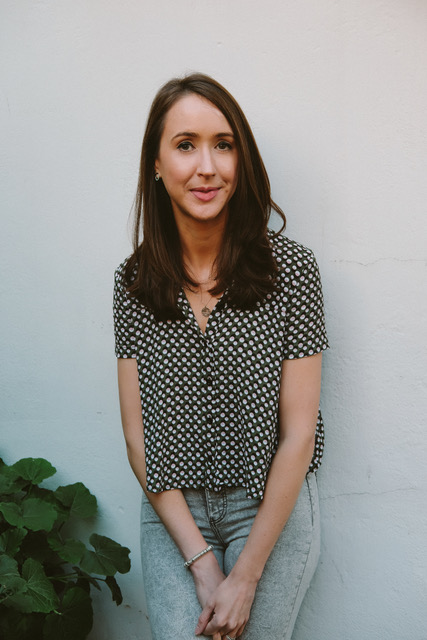
CW: Although there are, of course, significant differences between the two, what was it like watching the coronavirus unfold having just written a novel involving the 90s BSE [aka, mad cow disease] crisis?
RG: When I would tell people I was working on The Butchers, they’d say, “Wow, that sounds really topical.” Because the novel is about the Northern Irish border and about the transport of people and goods across it, and about simmering tensions, and I was writing and researching before, during and after the Brexit referendum. Obviously once the book came out, then it was like, “Oh! You’ve written a book about disease and how it spreads and how that’s depicted in the media – specifically the differences between the British and Irish media.” So it was topical in a totally different way. It was really curious to experience that kind of pivot. The doubly curious thing is that some interviewers would then ask, “So, having written this book, do you have any advice about coping with these times?” And I was like, absolutely not! I was just as flabbergasted as everyone else about the state the world had found itself in. I think sometimes people consider authors sages who are filled with lots of knowledge and advice. Once the book came out I could see the parallels between what was unfurling but, in terms of learning, I was just as disoriented as everyone else.
CW: Have you read Eula Biss’ An Inoculation?
RG: No!
CW: I read it several years ago. It’s a collection of essays about her experience with vaccinations after the birth of her son around the time of the 2009 swine flu. I decided to reread it during the lockdown, and I was wondering how many people had maybe contacted her throughout the COVID-19 Pandemic to ask if she had any advice. Like you said, author as sage. I imagine she was watching the news and felt just as overwhelmed as everyone else.
RG: Exactly. But then there was yet another resonance – even in the last few weeks while there’s been this EU–Britain standoff about customs checks, they’ve called it “the sausage wars,” and I’ve written a whole book about a kind of beef war. These things often become sites of age-old tensions and conflicts and wranglings over national identity.
CW: I just read an article in The Guardian: “The EU is lifting its ban on feeding animal remains to domestic livestock.” If you go to James Smart’s review of The Butchers, it links to this new piece about livestock.
RG: What? I’ll have to check that out. Wow, that’s interesting.A few years ago, the BBC did a documentary about the BSE crisis. It was one of those annoying things where I had just finished writing the book, and I thought: Couldn’t this have come out a few years earlier to save me all that research? Because by then I knew of all of the things within the documentary, but it would’ve given me so many sources while I was writing.
CW: Can you summarise the research you did surrounding the folklore and journey of the eight butchers? Is this mythology that exists? Or did you make it up?
RG: Okay, so I slightly lied when I said the number one question people ask me about the novel is regarding vegetarianism. The actual number one question is: “Are the butchers real?” I’m fascinated by people’s obsession with knowing the answer to that question. The short answer is that I made them up. The curse is an invention of mine, and the butchers as a group are also an invention or, rather, an amalgamation. I knew at the beginning of what ultimately became this book that I wanted to write a novel about folklore and mythology and how such things still operate in Ireland; how, especially in a country that is so religious, no one thinks it’s odd to hold two belief systems at the same time. Like you can be a devoted Catholic but also believe in the Fairies. It’s mad! And then, many years ago, I went on a road trip with a friend and discovered that his father was a farmyard vet. At some point, like you do, we were swapping stories and he spoke about the different things his father had seen over the years, especially in the 90s and during the BSE crisis. I thought it sounded like a bloody beef mafia! So, I had these two things, folklore and a beef mafia, and I wondered, How can I bring them together? I did a tremendous amount of research into Irish folklore, and I found loads of information about superstitions involving meat and cattle slaughter. For example, burning certain herbs under a cow’s nose before you kill it or tying a knot in its tail for good luck. I sort of brought all of that together to make the butchers. There’s also the fact that they’re a travelling group. The Travelling Community in Ireland has a very fraught history, and they’ve been treated with a lot of hostility because of their way of life. So the butchers were kind of a hybrid of all these things. But people are so angry when they learn I’ve invented them. They get really annoyed. Back to Goodreads and Amazon – they’re like “Don’t read this! She’s made it up!” It’s sort of hilarious to me because it is literally my job. But I think it raises this question about what a “real” myth is versus, I guess, a “fake” myth, when we all know that so much of folklore and mythology is basically invented. That being said, people feeling this uncomfortable uncanniness about what is true and what’s not is sort of what is going on within the novel, too, because of the way different belief systems are being challenged. I think in particular you see this in the way the other farmers feel threatened by the butchers and end up scapegoating them for far bigger issues. I think in a way that unease and often outright annoyance that people have expressed when they find out the butchers are made up is sort of a microcosm of the themes within the novel. I hadn’t expected that at all. I find it so curious.
CW: Like you said, it’s your literal job to create. Of course, I wondered if it was historically rooted and then maybe you adapted it. I think it’s brilliant that you conjured it up from your mind and turned it into a novel. I don’t feel like I’ve been taken advantage of, having read a work of fiction that is…fictional.
RG: That seems to be the thing. Feeling taken advantage of? It sent me down this rabbit hole of trying to ascertain what is telling story versus telling a lie versus misleading someone versus entertaining someone. All these things are on a spectrum. I feel like when we enter into some kind of contract between reader and writer, people tend to have a clear sense of what’s okay and what’s not. For some people it seems like I’ve breached that contract or pulled the wool over their eyes. I still haven’t quite figured out a totally articulate stance on that.
CW: I think that speaks to how well you put together that particular myth. It is believable if also fictional, which is maybe what makes it contentious for some.
RG: That’s so good to hear. You get a lot closer to the butchers at the end of the finished novel than I had written them in earlier drafts. Like the scene where Davey goes to the camp and spends time with them. They’re all just normal guys sitting around in their pants doing a crossword. That didn’t exist until the final, final draft. That was something my editor suggested. It was hard for me to write because up until that point the butchers themselves had remained to me this mythical, out of touch thing. It was really fun to decide how I would play that. There were times I wondered, Am I writing magical realism? I don’t think I am?
CW: Ooh.
RG: Nothing magical actually happens, though. There are superstitions. There are things to ward off the possibility of something magical happening. It is in a way a very realist novel because I became obsessed with mapping the plot onto actual events that occurred in 1996. There’s this cleaving to like: On that Tuesday in June this football match was happening…which is why maybe then people feel like it’s a hyperrealist novel and the butchers should be real.
CW: That takes me back to what you said about people referring to it as a “literary thriller.” I had similar questions about magical realism, realism, and what it means for a story to be thrilling. So, what would you call it? Where would you put it if you were shelving it in a bookshop?
RG: Great question. I’d just call it literary fiction, mainly because I think we use that term for books we don’t know quite what to do with! I sort of wish all fiction could be literary fiction. A wonderful new bookshop opened near me recently, and I was having a lovely chat with the owner. She was talking about how she set out her shelves and eventually decided to just put everything together. And we talked about the idea of people then being able to find books that maybe they hadn’t anticipated finding. Like, for example, which bits of Margaret Atwood are dystopian and which are science fiction or speculative? I’m a big believer in them all just being stories. I do appreciate my publishers for persevering with this novel because it does seem to be a bitch of a book to position. It could be so many things. It could be literary fiction, it could be coming-of-age, it could be magical realism. On the one hand, I think that’s a really fun thing about the novel. But I’m sure from a marketing standpoint it’s a total headache, as it doesn’t neatly fit into just one category.
CW: Like The Butchers, your previous novel Nine Folds Makes a Paper Swan also has strong ties to coming-of age, tradition, and family. There is a consistent theme of belonging in both. In The Butchers, the butchers seem to belong to each other more than they belong to their families. And there’s a thread throughout about what it can mean to belong to one’s country. Are you particularly interested in issues of belonging? Do you consider it to be recurring theme in your work?
RG: That’s another one of those things that I didn’t realise until after the fact. If you had asked me years ago would there be any similarities between Nine Folds and The Butchers I would say, “No!” I felt like I was writing a totally different novel in The Butchers – apart from having multiple perspectives. Then, in speaking with my editor, it was clear certain themes kept popping up, like belonging and faith. Not to totally self-psychoanalyze, but I think as someone who was raised religious and still has some kind of faith that is hard to articulate and adhere to, faith is something I constantly come back to. I find it really messy and challenging. I feel like this is betraying so much, but I think in both Nine Folds and The Butchers one of the questions is, What does it mean to really believe in something and what does it mean to have just been brought up in a household that believes in something? Even now when I occasionally go to a church, am I there because I have a profound belief in God or am I there because it reminds me of my dad and growing up in Ireland and going to church on Sundays? There’s a beautiful kind of solace in that. Is that okay? Is it okay that there are so many things about the church that don’t sit well with me? That spectrum of belonging, family, and tradition, and then the faith and beliefs and principles by which to live your life. There’s so much to deconstruct when it comes to understanding what a religion or faith is. There are so many parts. I’m curious about the possibility of holding some of those things and not others. That’s a deeply personal preoccupation of mine. I think also in a cliché way, as someone who left Ireland when they were 18 and has lived in the UK ever since, I have a very curious relationship with my homeland in that I feel very Irish, but I suspect I probably won’t ever live there again. I think I have that quite annoying emigrant thing, where I’m able to step back and look at Ireland from afar and see all its flaws. That’s probably really unfair of me. But it also holds such a special place in my heart. I love Ireland dearly, and yet I don’t see myself going back there permanently. My husband finds that so intriguing. Maybe because I left when I was 18, being a child and living in Ireland feels synonymous, whereas being an adult and living in the UK feels synonymous. So, while it would be possible and lovely, there’s sort of this psychological block that I have. For those reasons, I think I’m always mulling over questions of home and belonging and identity.
CW: I can relate to so many aspects of that. I’ve lived in UK for almost six years. This feels like home to me, even though when I speak of my home state I call that “home” as well. Like you’ve said, having distance breeds this confusing criticism of and protectiveness over this place that is meaningful. Even though I have no desire to return to it.
RG: Fiercely protective, yes.
CW: Especially with the recent presidential election, I’ve had this weird shame and defensiveness. Like, of course as an American I’m going to be critical of America’s shortcomings, but how dare someone elsebe critical of America’s shortcomings. Suddenly I’m a patriot or something.
RG: I will criticise certain aspects of Ireland or the Irish government, but then when someone British does it I sort of change my tune and want to defend Ireland!
CW: There’s a loyalty that comes with calling a place home, even after you leave. And you have actually touched a bit on another question I have. Nine Folds has several character perspectives and, in The Butchers,so many characters are intertwined beyond their knowledge. I, personally, have two favourites in Grá and Davey. Both are, in their own ways, coming to terms with decisions they’ve made regarding sexuality and identity. Did any characters resonate with you in particular?
RG: People have said to me, “I can’t believe you write with so many different points of view. That must be so difficult.” I actually feel the opposite. I’m currently attempting to stick with just one character in a new novel, and it’s going awfully. When you switch point of view you get to write all the juicy bits. If it gets boring, you can just change point of view!
[Both laugh.]
RG: When I started writing The Butchers, I tried out loads of different perspectives, even more than there currently are. And I think my agent was like, “You need to narrow this down.” I ended up looking over the chapters I had written up to that point, and it occurred to me that there was a really nice symmetry between having a father and a son and a mother and a daughter POV. I think in a book that is so much about generations and what is passed down and inherited, I felt these pairs emerge. I love all the characters dearly, but the one my editor felt was the odd one out was Fionn, Davey’s father. He’s a bit of a shit lad. He’s an alcoholic, he was violent towards his wife, he has a pretty dark past. And yet, I empathised with him, and I wanted readers to empathise with him. I wanted to chip away at what made him so toxic and understand where that came from, especially his upbringing, his father, what the world was like when he was coming of age. In earlier drafts, he was significantly more evil. My editor was like, “We will never warm to him.” So, in later drafts, it was toning down how awful he had been and toning up his atonement and desire for redemption. At one point, there was the possibility of writing out his character entirely, but the symmetry I already articulated felt so integral to the book. I really wanted to keep him. I also talk a lot about the way The Butchers is trying to build upon the traditional Irish rural canon, which is so male heavy. So, to have has two strong female voices and a gay male voice was significant to me. And then Fionn is the remaining male voice that you would traditionally find in this kind of story, the troubled farmer.
CW: The novel is called The Butchers, but is the novel really about them?The butchers and their families have a responsibility to continue certain traditions, even if that comes at the expense of the women and families left to wait while the butchers travel for much of the year. There is such a richness in the way the women come together and occupy their time. At the end of the novel, there’s this brief peek into the lives of the butchers while they’re travelling, but primarily the reader is with the people left behind. Would you say the novel is about the butchers or about their families?
RG: I don’t think this book is about the butchers. As I’ve said, I came up with them as a concept. At one point, I had the idea that the book would have eight chapters and one chapter would be from the point of view of each butcher. Then I was like, What am I doing? I didn’t want to write another book about eight dudes in rural Ireland. We already have a lot of those books. That’s been done. What has not been done or has been done way, way less is the female voice, the LGBTQ+ voices, the other aspects of that world, culture, and community that haven’t been written about to the same degree. The butchers are, I suppose, sort of a foil for the characters around them.
CW: The character of Ronan is a photographer, and his photograph of a butcher is significant in the novel. Why did you choose that particular creative field for Ronan instead of making him, for example, a writer?
RG: In a way, the most important thing for me is that Ronan is an outsider coming into this world and drawing on it to make his art and further his career, and what the potential ethical ickiness that could cause. In many ways, he’s a doppelgänger for me. I’m coming in, writing about this community and part of the world and moment in time that I wasn’t exactly privy to. I was alive, but I was in a boring middle-class community in Dublin not living in the charged rural landscape along the Irish border. I think I am very sensitive to questions around who has a right to tell what story. I don’t think you can only write about your own experience, but I think if you’re going to venture beyond that, then you should do so really carefully and deliberately. And if there’s an opportunity to write some of that uncertainty into a novel, then it will only be richer for it. Ronan is an amalgamation of those questions and concerns. Also, one year in Birmingham, we had a poet called Dan O’Brien come and speak to our students. He wrote a collection called The War Reporter, which was about this real-life Canadian war reporter who would go out to various conflict zones and take photographs (He actually won a Pulitzer Prize for one particularly shocking shot.) But then he would return and feel ethically compromised by the fact that he was able to leave and come back to the safety of his home while making a career for himself based on the atrocities he had witnessed elsewhere. I was thinking about this really early on in the process, maybe even before I had really considered writing The Butchers. You know how sometimes you got to a talk or you hear someone articulate an idea and it just stays with you? That in particular really stayed with me. So, thank you Dan O’Brien!
CW: Yes! Without giving too much away, there’s this conversation in Ireland that Ronan has with Grá where she says something like, “You’re here and you get to see the pretty landscapes and look into our lives and then you get to leave.” There is a very sharp contrast when we see Ronan’s later life in New York. He’s there to display a violent and evocative photograph he took while in Ireland, and the significance of the photograph reach through time and space. It’s really beautifully done.
RG: Thank you.
CW: There’s a line in the novel spoken by Eileen: “In this country, love, cattle are politics.” There are so many endearing and shocking moments involving food and violence and capitalism. Can you speak on how you meld together politics and folklore in The Butchers?
RG: That was a challenge during the whole book really. Like I said, when I went on that road trip with my friend, he kind of opened my eyes to that particular time period. Early on in the 90s, there had been this tribunal in the Irish courts, which at the time was the longest running tribunal the country had ever seen. It was called the Beef Tribunal, and it was basically exposing this whole world of misdemeanours and problematic activity that also involved some Irish politicians. All these guys were making so much money, and it was dodgy as hell! Again, I was very young at that time. I didn’t know any of this then. In a country where agriculture was and still is such a huge industry, I hadn’t realised quite how enmeshed it was in the political fabric of the country. Then, of course, historically you’ve also had parts of the government enmeshed in the church. That holy trinity of men, cows, Jesus was very, very tightly knit! That was so interesting to me, and I wanted to get into that. When I first went digging, I couldn’t have told you about any Irish traditions to do with cows, but I very quickly found loads. I went to various archives, I interviewed a few notable folklorists (which, by the way, is the coolest job title ever). They were able to tell me that, oh, of course, there are millions of stories involving cows. Finding a way to bring all those things together was important to me. Also, for so long, the cause of BSE was unknown, and people did have really odd theories about it. It seemed probable to me that people would scapegoat a minority group. That’s a tale as old as time, right? Even in very recent history whenever something goes wrong people are like “Let’s blame immigrants and minorities!” So, I decided that if the cows are going mad why wouldn’t the local people be like, “Hey, what about those eight weird guys over there? I bet it has something to do with them.”
CW: [Laughs.] Well, speaking of research, it sounds like you’re working on another novel. How much can you share about that?
RG: I can tell you lots. It’s not going tremendously, to be honest. I wrote all this past year. I feel like people said they weren’t writing much during the pandemic. I happened to write a lot, but it turns out what I wrote probably wasn’t great. I’m still in the figuring-out stage. In a really perverse way, I seem to start my books by setting myself particular challenges and parameters. It’s almost like self-constructed brief. So the brief I set for myself this time was I wanted to write a novel that wasn’t set in Ireland, and I wanted to write a novel that only had one protagonist. But then I ended up tricking myself and cheating on my own brief like, Well, if I can only have one protagonist then I’m going to jump around in time a lot. Age 13, Age 20, Age 45 – in that way it feels like different perspectives, but it’s still just the one person, which is sort of hilarious because I’m the one who set the brief to begin with! It’s a book that is pretty personal to me as it’s about things that I’m wrangling with in my own life. There’s a lot about motherhood and the decision whether or not become a mother, and it’s also a book about art. The main character is a sculptor. I feel like all the pieces are there, but they’re not quite in the right order just yet. I’m now taking it all apart and putting it back together.
CW: What a perfect way to describe a book about an artist. What are you reading right now?
RG: Literally this morning I started a proof of the new Sarah Hall novel, Burntcoat. It is exquisite. She is one of my favorite writers. I love her. She was really influential while I was writing The Butchers. A lot of the stuff she’s done about female sexuality and landscape has been so bloody brilliant. Burntcoat is a lockdown novel, as in it was written during and is set during a lockdown. I sort of felt like I’d never want to read a book about lockdown because who the hell would want to read a book about what we have just experienced, but then it was announced that Sarah Hall wrote one and I was like, “Oh, obviously I have to read that!” And, in terms of the best book I’ve read so far this year, I’m obsessed with Luster.
CW: Yes!
RG: I know we’ve talked about it through email, but I read it back in January, and I can’t stop thinking about it. I think it’s really exceptional.
CW: It is intimidatingly fantastic.
RG: Exactly. It’s like, going back to what we were talking about in terms of colliding genres, it’s the perfect combination of a millennial female novel with this beautiful, lyrical prose that is lush and thought-provoking. It’s political, it’s funny as fuck. It is just—
CW: I love it.
RG: I love it.
CW: Well, technically we’ve been talking for well over an hour.
RG: I could talk to you all day.
CW: I could talk to you all day. Thank you so much for taking the time to chat with me. This has been the coolest, obviously. Again, I really thought The Butchers was wonderful. I can’t wait to read your next book.
RG: Well, it’ll be yours next, Cindy.
CW: Oh, God!
RG: I want to read that one.
CW: It’s taking me a long time.
RG: It does take a long time. People should speak about that more often. It takes a bloody long time to write a book.
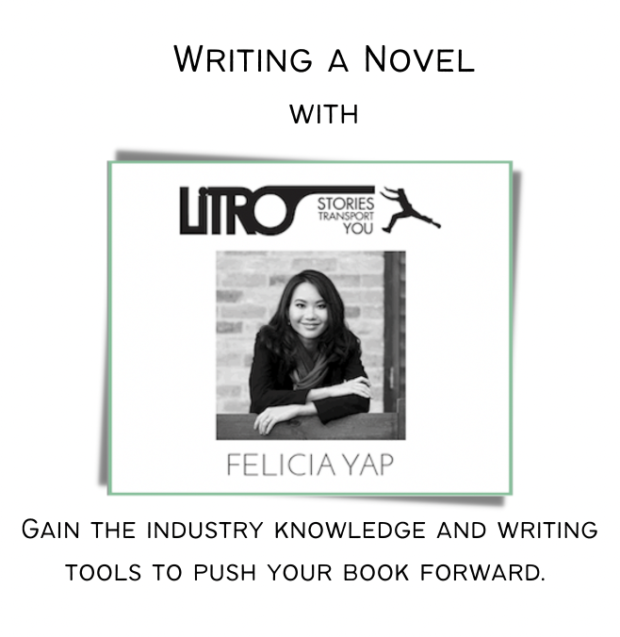
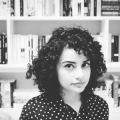
About Cindy Withjack
Cindy Withjack holds a Master of Arts in Creative Writing from the University of Birmingham and is a PhD candidate at Lancaster University, where she is writing a novel. Her work has been published in theBurg, From the Fallout Shelter, The Huffington Post, The Journal, Slice Magazine, Litro Magazine, Women are Boring, and Banshee.

